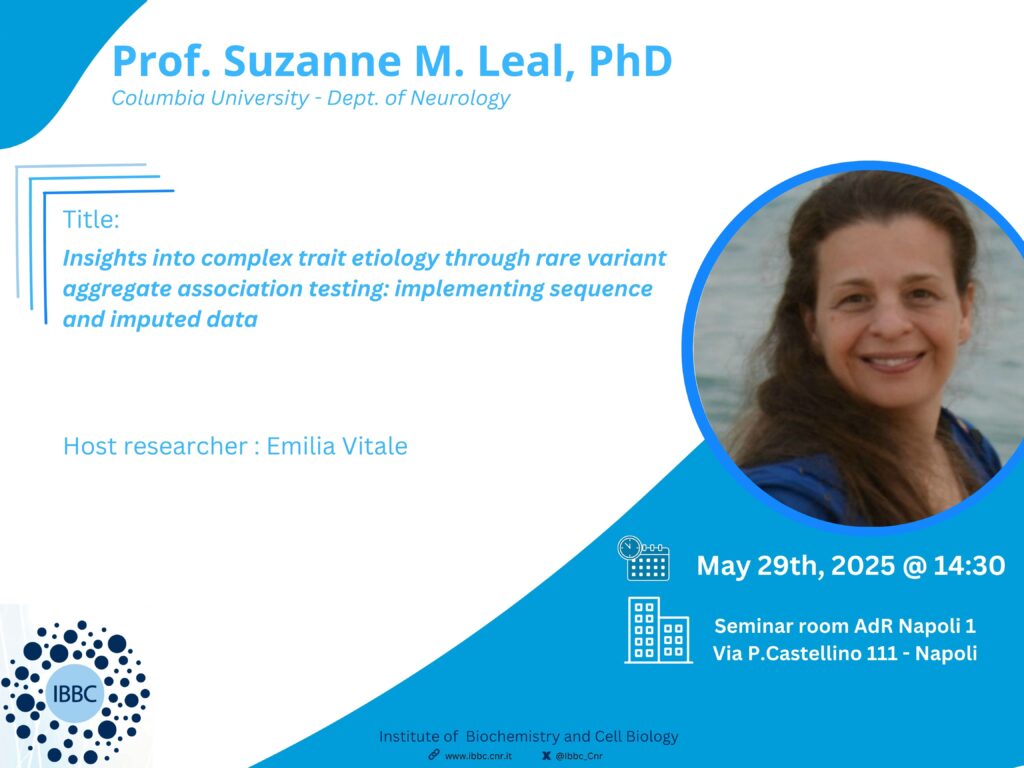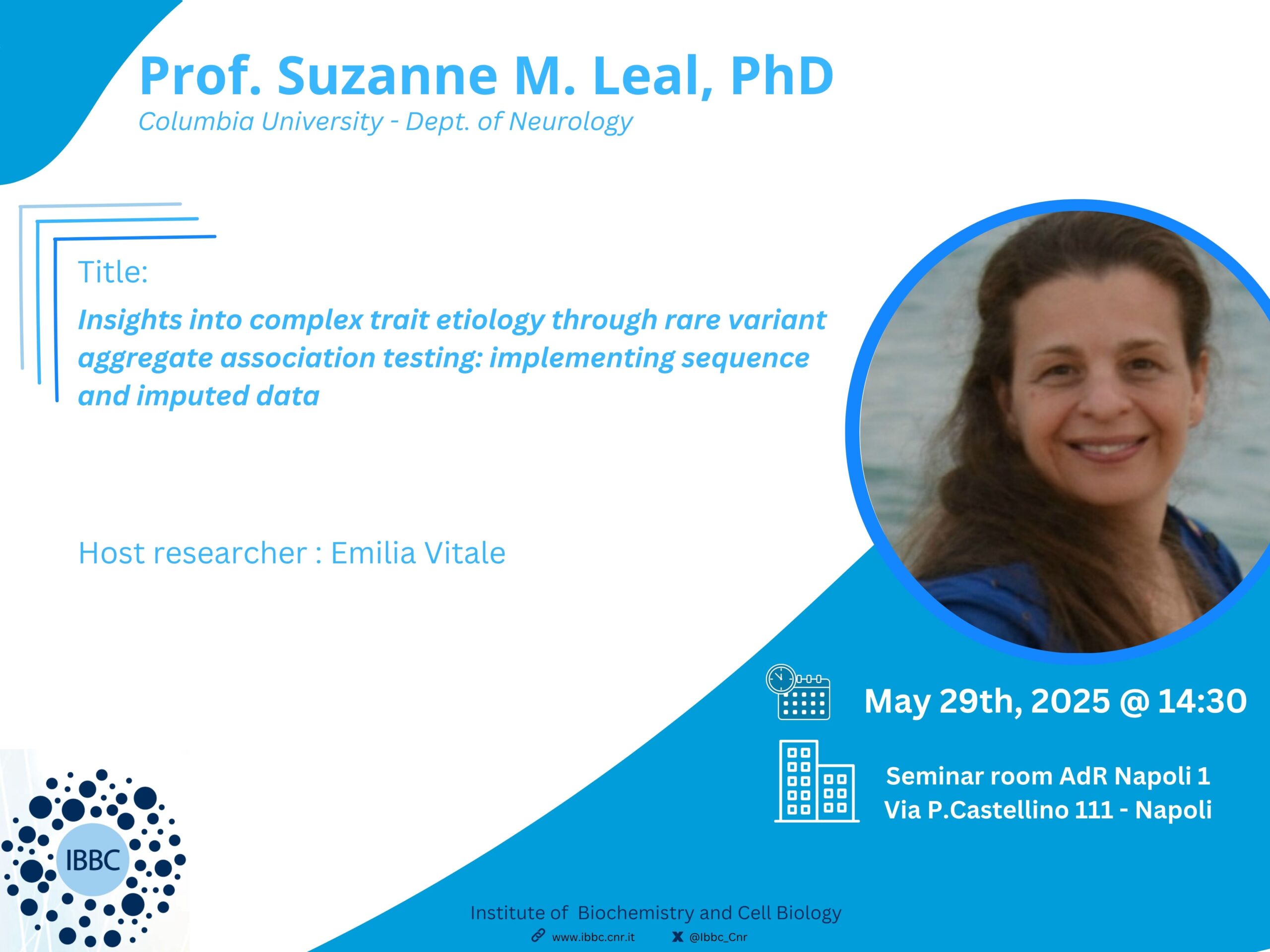- Prof. Suzanne M. Leal, PhD
Columbia University – Dept. of Neurology - Title: Insights into complex trait etiology through rare variant aggregate association testing: implementing sequence and imputed data
- Host Researcher : Dr. Emilia Vitale
 Prof. S.M. Leal short background
Prof. S.M. Leal short background
My primary interest lies in understanding the genetic etiology of complex and Mendelian traits, with an emphasis on developing and applying statistical and epidemiological methods to tackle this complex problem. I have worked extensively on method development to aid in gene identification and elucidate disease etiology using various omics data. Additionally, I study a variety of complex and Mendelian traits that include Alzheimer’s disease, late-onset hearing loss, neurodevelopmental disorders, non-syndromic hearing impairment, skeletal disorders, e.g., polydactyly, and tinnitus. In addition to mentoring pre-doctoral and postdoctoral trainees, I organize and teach courses nationally and internationally on gene mapping and statistical genetics.
Abstract
Rare-variant (RV) aggregate association analysis (AAA) can increase the power to detect associations compared to analyzing individual variants. The utility and caveats of performing RVAAA is demonstrated through a study of age-related (AR) hearing loss (HL) which analyzed UK Biobank exome sequence data and self-reported HL phenotypes. The study brings new insights into the etiology of ARHL, demonstrating many Mendelian genes, i.e., 32, which have been implicated in early onset HL also play a role in the etiology of ARHL. Additionally, RV in Mendelian HL genes typically exhibited higher effect sizes for ARHL compared to those in other associated genes.
To date RVAAA has been performed by analyzing sequence data, however generating these data for well powered complex trait studies can be prohibitively costly. Using imputation, many variants including RVs can be computationally generated. To investigate performing RVAAA using imputed variants, variants were imputed for UK Biobank study subjects who have exome sequence and genotype array data using the HRC_r1.1 (N=64,976 Haplotypes) and TOPMed_r3 (N=267,194 haplotypes) reference panels. Simulation studies were used to evaluate the power of performing RVAAA using imputed variants and the results compared to analyzing exome sequence data. Lipid levels were also analyzed, performing RVAAA using exome sequence data and imputed variants obtained from the UK Biobank. Even when ultra-RVs were analyzed, significant associations for the imputed variants could be detected, e.g. for PCSK9. Although, there is a decrease in power when performing RVAAA using imputed variants compared to analyzing sequence data it still a viable approach to detect complex trait associations.

